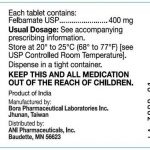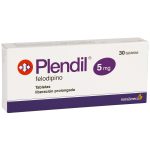
Contents
Settling Your Stomach After Vomiting: A Guide
Vomiting can be a disarming experience. Ease your stomach after vomiting by slowly drinking clear fluids and eating mild foods.
Vomiting can be a disarming experience. You likely want to end it quickly and avoid repeating it.
The fastest way to recover from vomiting depends on the cause and your age. The key is to avoid further irritating your stomach and allow it to settle on its own.
In all cases of vomiting, you need to act slowly. Monitor how you feel and avoid drinking or eating too much too soon after vomiting.
It is important to eat and drink the right things. Stick to clear fluids and mild foods. Eating or drinking the wrong things, even after waiting the right amount of time, may cause nausea and vomiting again.
Vomiting in children, especially infants, can be concerning. However, the general recovery steps are the same. Any specific recommendations for children are noted below.
What causes vomiting?
Identifying the cause of your nausea is key to finding a cure for it. Causes of vomiting can vary by age.
Gastroenteritis is a common cause of vomiting in all age groups. It is caused by an infection in your digestive tract, which needs time to clear up for you to feel better.
Food allergies can also cause vomiting at any age, although they are more commonly diagnosed in youth. In infants and children, cow’s milk is a common allergen that needs to be removed from the diet to stop vomiting.
Other causes of vomiting in adolescents and adults include pregnancy, eating disorders, drug and alcohol consumption, brain-related disorders, motion sickness, migraines, cyclic vomiting syndrome (more common in children and linked to chronic marijuana use in adults), and reactions to chemotherapy.
Some conditions, such as brain tumors, require specific treatment to cure vomiting.
If your infant is vomiting and you are unsure of the cause, seek immediate medical attention if it is potentially dangerous, such as blockages in the stomach or intestines, or intussusception.
How to drink fluids after vomiting
Vomiting can lead to dehydration, especially in children and infants. To prevent dehydration, drink clear fluids without irritating your stomach.
Adults and older children should wait about thirty minutes after vomiting before drinking one to two ounces of a clear fluid. Gradually increase the amount if your stomach tolerates it without feeling sick.
For infants, have them swallow a teaspoon of an oral rehydration solution every five minutes. These solutions are balanced mixes of fluids available at supermarkets and pharmacies. Take a break if they cannot keep the solution down.
Eventually, you should be able to give them enough fluid to avoid dehydration without medical attention. Only switch back to their normal breast milk or formula when they have consumed an adequate amount of the solution and are no longer at risk of dehydration or vomiting.
Appropriate fluids for older age groups include plain water, mild broth, weak lightly sweetened tea, ginger ale, and chamomile tea.
Avoid carbonated beverages and alcohol as they may upset your stomach more.
Eating after vomiting
Wait until you have kept liquids down for a few hours before resuming eating. Pay attention to your body’s hunger signals.
Start with mild foods, such as the BRAT diet (bananas, rice, applesauce, and toast). Stick to small portions and avoid spicy, fried, and processed foods until fully recovered.
Medications for nausea and vomiting
There are medications available to treat persistent vomiting and nausea. Examples include antihistamines for motion sickness, certain drugs for mild to moderate symptoms, and specific prescriptions for more severe vomiting, such as chemotherapy-induced vomiting. Consult your doctor before taking these medications.
Alternative methods to recover from vomiting
There are additional steps you can take to feel better and reduce the chances of vomiting again:
- Get rest. Avoid excessive movement immediately after vomiting. Find a comfortable position.
- Avoid strong odors. Identify particular odors that trigger your nausea and avoid them.
- Try essential oils. Some evidence suggests that inhaling ginger or peppermint essential oils can provide immediate relief from nausea and vomiting. However, more research is needed to confirm these findings.
Caring for your teeth after vomiting
Stomach acid can damage your teeth when you vomit. It is important to remove the acid as soon as possible.
After vomiting, swish water or mouthwash around your mouth and spit it out. You can also rinse your mouth with a solution of water and one teaspoon of baking soda to help remove the acid. Wait for about 30 minutes before brushing your teeth.
When to seek medical attention
See a doctor if your vomiting is severe or if your nausea persists for an extended period. Children and infants should receive medical attention if vomiting does not cease or if you suspect a serious underlying condition.
Sources:
Journal of Alternative and Complementary Medicine: "A brief review of current scientific evidence involving aromatherapy use for nausea and vomiting."
Merck Manual: "Nausea and Vomiting in Adults," "Vomiting in Infants and Children."
Mouth Healthy: "Cold and Flu Season: 5 Ways to Care For Your Mouth When You’re Sick."
Stanford Health Care: "Treatments for Nausea and Vomiting."
University of Michigan: "Diarrhea and Vomiting."
University of Rochester Medical Center: "What You Need To Know About Vomiting."


